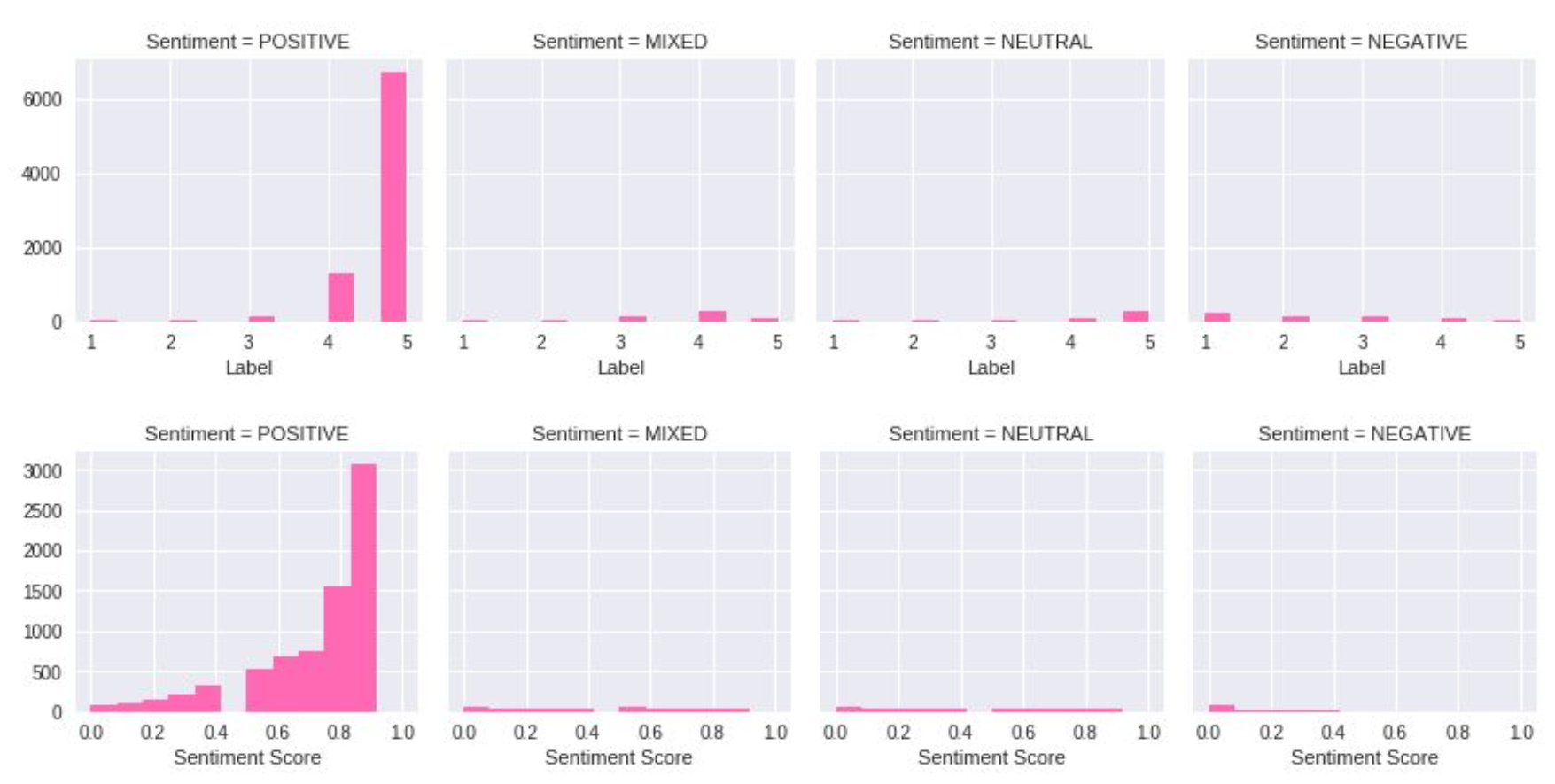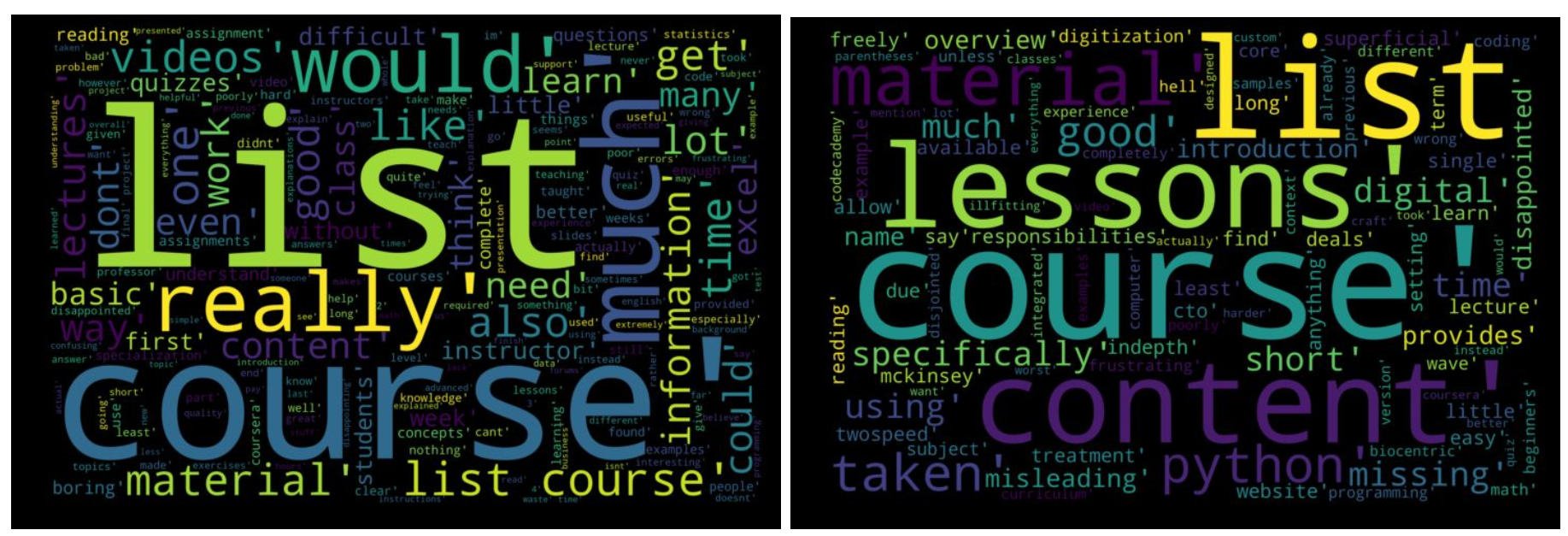CLICK HERE: Colab Notebook Version
CLICK HERE: Full PDF Version
Overview
In this project, I used natural language processing(NLP) tools from Amazon Web Services(AWS) and Google Cloud Platform(GCP) to analyze the sentiment based on a dataset of 100K Coursera’s Course Reviews.
The original data is from: 100K Coursera’s Course Reviews Dataset
Steps of Analysis
Data Ingest
Original dataset is like this, which is clean to use:
AWS Configuration
In this process, python packages “aws” and “boto3” are used. After the configuration of credentials and config, I used the “comprehend” service under boto3.client, which is used for natural language processing. The syntax is:
comprehend.detect_sentiment(Text=row, LanguageCode='en')GCP Configuration
In this process, language, enums and types from google.cloud are used. A json file with the credentials is used to connect to the server. The syntax used to analyze is: —
client.analyze_sentiment(document=document).document_sentiment.scoreSentiment score ranges from 0 to 1, the larger the score, the more positive sentiment.
EDA based on the result of AWS and GCP



Conclusion
- The NLP tools in AWS and GCP are convenient and accurate, and the tool of GCP offered customized definition on the threshold of sentiment.
- Coursera should provide necessary assistance on the courses that are more difficult or related to python. Moreover, Coursera should look into the courses with reviews of “boring” and “misleading”.
